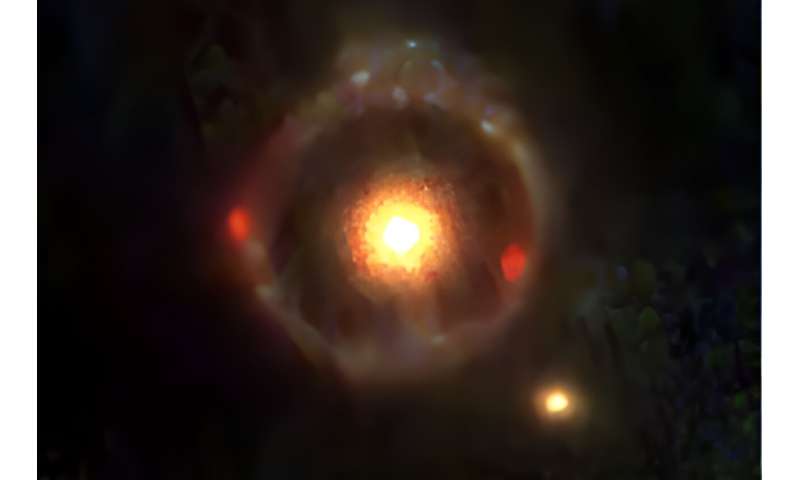Best of Last Week—new quiescent galaxy discovered, training a third robot arm, a drug to mimic exercise

It was a good week for space exploration, as a team of astronomers led by Pieter van Dokkum of Yale University discovered a new galaxy using data from the James Webb Space Telescope. The quiescent galaxy has been named JWST-ER1. Another team of astronomers from Canada and the U.S. using data from the JWST identified the first spectrum of a TRAPPIST-1 planet—seven Earth-sized stars were seen revolving around a cold star. And India's space chief Sreedhara Panicker Somanath told the press that he was unfazed by the end of his country's moon mission. The rover Pragyan ceased communicating with the ISRO reportedly after being put to sleep for the lunar night. Somanath suggested it had accomplished everything it was expected to do.
In technology news, a combined team of engineers from China and the U.S. designed a desalination system that could produce freshwater that is cheaper than tap water. And another combined team, this one with members from the Universities of Edinburgh in Scotland and Sheffield in England, developed support route recognition software for use with visual navigation in farm robots—it was inspired, they claim, by ant brains. Also, a team at Purdue University introduced a new approach to communication between the human brain and computers via wireless neural implants, electro-quasistatic fields that allow for broadband communication bandwidth. And a collaboration between researchers from Queen Mary University of London, Imperial College London and The University of Melbourne reported that just one hour of training is all a person needs to control a third robotic arm.
In other news, a team of medical researchers led by a group at Brigham and Women's Hospital, found evidence that COVID-19 was more commonly associated with sepsis during the pandemic than previously thought. They also found it was more deadly than was known at the time. A team at George Washington University found that the skin behind the ears and between the toes plays host to a large collection of unhealthy microbes, bolstering the "grandmother hypothesis" that suggests washing such areas regularly can keep a person healthier. And finally, a team at the University of Florida found that a new class of drugs called "exercise mimetics" showed promise in mimicking exercise and boosting muscle mass, leading to weight loss.
© 2023 Science X Network